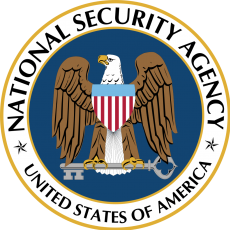
Email: ZYVC057@live.rhul.ac.uk
Total Article : 213
About Me:I'm a graduate student studying International Criminal Law and first started writing for King's News almost 4 years ago! My hobbies include reading, travelling and charity work. I cover many categories but my favourite articles to write are about mysteries of the ancient world, interesting places to visit, the Italian language and animals!

The US response to terrorism pre and post 9/11 is emblematic for understanding the limitations of the American national security theory of statism. The initial goal of increased national security measures was to counterbalance the threat of the USSR during the Cold War. In the post-Cold War era particularly, warfare has undergone extensive change which led Mary Kaldor (1999) to coin the term ‘new wars’ - which involve a non-state actor and an internationalisation of economic funding which is no longer reliant on state aid. Despite the newly drawn attention towards the changing dimensions of warfare, America’s approach to international issues did not alter significantly.
The state-centric approach America had adopted pre 9/11 erroneously underestimated the impact non-state actors could have on state affairs. Once President George W. Bush came to office in 2001, he immediately attempted to promote a uniquely American internationalism, focusing primarily on confronting China, reducing America’s multilateral obligations and reinforcing an antimissile defence system to counter the supposed threat of missile attacks from what were called rogue states.
In reality, it became slowly apparent that the US military was ‘still organised more for cold war threats than for challenges for the new century’ (Mead and Baverich 2002, 139-140). In fact despite repeated warnings from Richard A., Clarke and George Tenet, the Director of the CIA, the Bush administration was reluctant to adhere to a Principals Committee meeting to discuss the threat posed by Al-Qaeda until 4 September 2001. In reference to the tragic event of 9/11 Bush stated that ‘all this was brought upon us in a single day – and night fell on a different world’. According to the accounts of Clarke however the threat was known but disregarded as certain officials like Paul Wolfowitz in the US Defence Department did not consider Al-Qaeda to be a major threat as it lacked support from an actual nation. By adopting such state-centric views which continued to recognise only nations in a globalised world of rising non-state actors such as Al-Qaeda, the US could not protect itself against the horrors of 9/11. As a result the state-centric theory proved to be flawed and Americans nationwide paid the price.
With 9/11 it became apparent that terrorism was no longer a small, contained act of minimal damage carried out by groups confined to a single nation such as the threats posed by the IRA in the ‘70s. Brian Michael Jenkins identified these modern day terrorists as having developed new financial resources and depending less on states, capable of waging global campaigns and exploiting technology, and evolving new models of organisation.
According to a UN Resolution, terrorism can be one or a series of ‘criminal acts intended or calculated to provoke a state of terror in the general public, a group of persons or particular persons for political purposes’ and it has become one of the most prominent issues of security studies. In Bush’s view the terrorist attacks causing 9/11 prompted a change in the strategic thinking of the US. Despite this, many scholars argue that de facto not much had changed in terms of the US international defence rationale as it still relied heavily on military attacks as a destabiliser in the case of threats. Bush revived the strong nationalistic tendency to impose a distinctive American internationalism when it came to US foreign policy.
What had started as a catastrophic offence by a non-state actor quickly escalated to be war to bring peace and democracy to ‘evil’ states. Any gains Bush had made by endorsing once again state-centric security thinking were then ‘dwarfed by a political failure to broadly realign American policy with the transformed environment of the post-Cold War era, where the pattern of conflict went well beyond the state’ (Patman 2009:229). One of the hardest realisations was that, even after 9/11 when the US had undermined its very own security when faced with interconnected global threats, Bush continued to target nations with military force as a means to defeat internationalised terrorist groups.
Image: http://upload.wikimedia.org/wikipedia/commons/thumb/0/04/National_Security_Agency.svg/1024px-National_Security_Agency.svg.png

0 Comment:
Be the first one to comment on this article.